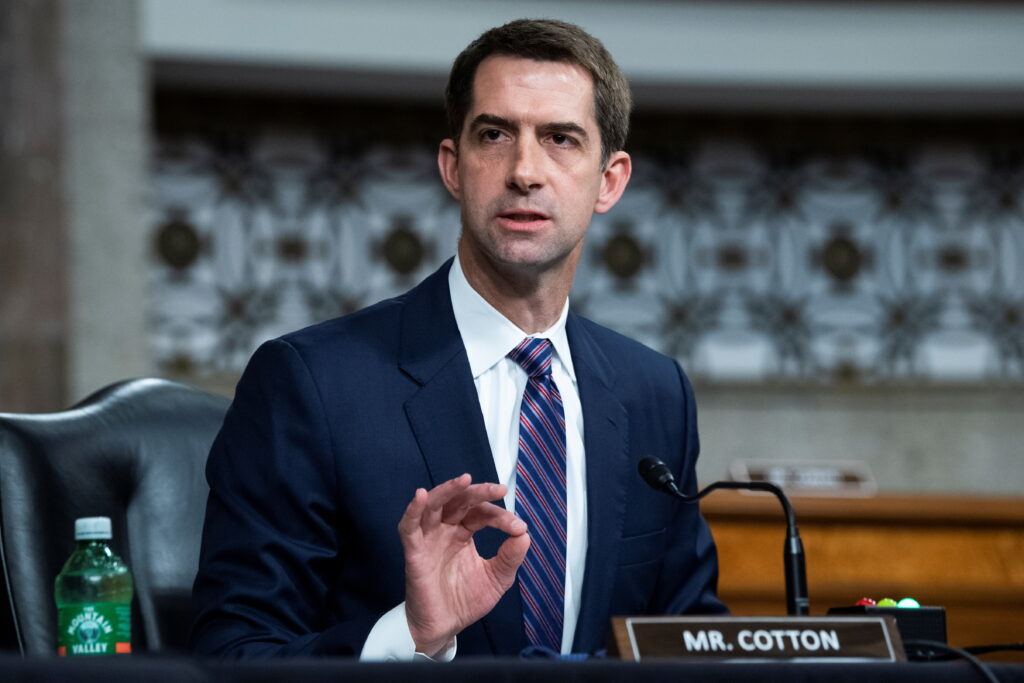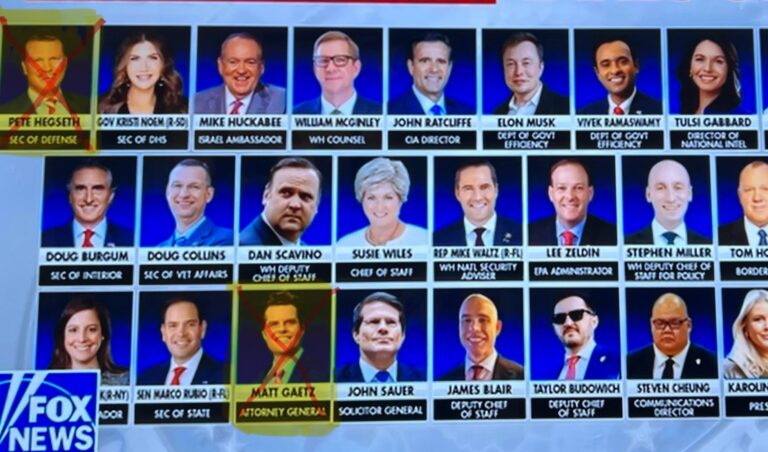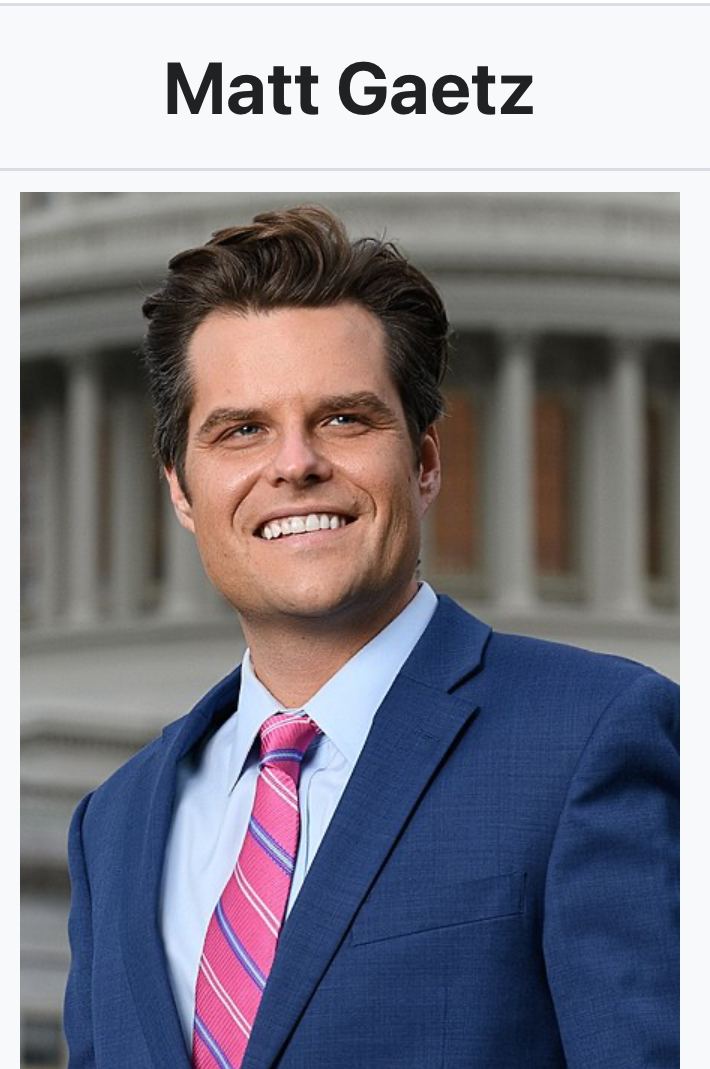
Senator Tom Cotton’s nomination as Secretary of Defense in the Trump administration signals a potential shift in U.S. defense policy, reflecting his established positions on national security and military affairs.
Background and Experience
Tom Cotton, a former Army officer and current U.S. Senator from Arkansas, has a robust background in defense and national security. His military service includes deployments to Iraq and Afghanistan, providing him with firsthand experience in combat and military operations. In the Senate, Cotton has been a vocal advocate for a strong national defense, serving on the Armed Services and Intelligence Committees.
Anticipated Policy Directions
1. Increased Defense Spending: Cotton has consistently supported boosting the defense budget to enhance military readiness and modernization. As Secretary of Defense, he is likely to advocate for increased funding to address emerging threats and maintain U.S. military superiority.
2. Firm Stance on Adversaries: Known for his hawkish views, particularly toward nations like Iran and China, Cotton may push for more assertive policies to counter these countries’ influence and activities. This could involve strengthening alliances and increasing military presence in strategic regions.
3. Modernization and Innovation: Cotton has emphasized the need for the U.S. military to adopt advanced technologies and modernize its forces. His leadership may focus on accelerating the development and deployment of cutting-edge defense systems, including cyber capabilities and artificial intelligence.
4. Support for Service Members: With his military background, Cotton is expected to prioritize initiatives that improve the welfare, training, and support systems for service members and their families.
Potential Challenges
Cotton’s appointment may face scrutiny due to his previous controversial positions, such as his 2015 letter to Iranian leaders and his stance on military interventions. Balancing his assertive policy preferences with diplomatic considerations will be crucial in his role as Secretary of Defense.
In summary, Tom Cotton’s leadership as Secretary of Defense is anticipated to reinforce a strong defense posture, advocate for increased military spending, and adopt a firm approach toward global adversaries, aligning with his established views on national security.
Senator Tom Cotton’s nomination as Secretary of Defense in the Trump administration signals a potential shift in U.S. defense policy, reflecting his established positions on national security and military affairs.
Tom Cotton, a former Army officer and current U.S. Senator from Arkansas, has a robust background in defense and national security. His military service includes deployments to Iraq and Afghanistan, providing him with firsthand experience in combat and military operations. In the Senate, Cotton has been a vocal advocate for a strong national defense, serving on the Armed Services and Intelligence Committees.
Anticipated Policy Directions
1. Increased Defense Spending: Cotton has consistently supported boosting the defense budget to enhance military readiness and modernization. As Secretary of Defense, he is likely to advocate for increased funding to address emerging threats and maintain U.S. military superiority.
2. Firm Stance on Adversaries: Known for his hawkish views, particularly toward nations like Iran and China, Cotton may push for more assertive policies to counter these countries’ influence and activities. This could involve strengthening alliances and increasing military presence in strategic regions.
3. Modernization and Innovation: Cotton has emphasized the need for the U.S. military to adopt advanced technologies and modernize its forces. His leadership may focus on accelerating the development and deployment of cutting-edge defense systems, including cyber capabilities and artificial intelligence.
4. Support for Service Members: With his military background, Cotton is expected to prioritize initiatives that improve the welfare, training, and support systems for service members and their families.
Potential Challenges
Cotton’s appointment may face scrutiny due to his previous controversial positions, such as his 2015 letter to Iranian leaders and his stance on military interventions. Balancing his assertive policy preferences with diplomatic considerations will be crucial in his role as Secretary of Defense.
In summary, Tom Cotton’s leadership as Secretary of Defense is anticipated to reinforce a strong defense posture, advocate for increased military spending, and adopt a firm approach toward global adversaries, aligning with his established views on national security.
Early Life and Education
Tom Cotton was born on May 13, 1977, in Dardanelle, Arkansas, a small town in the Ozarks. Growing up on a cattle farm, Cotton learned the values of hard work and resilience. His parents, Avis and Thomas Leonard Cotton, were respected figures in their community. His father was a district supervisor in the Arkansas Department of Health, while his mother was a schoolteacher. Cotton’s rural upbringing would later influence his political philosophy, emphasizing the importance of self-reliance and limited government.
Cotton excelled in academics and sports, which paved his way to Harvard University. He graduated from Dardanelle High School in 1995 as a top student. At Harvard, he majored in government, quickly distinguishing himself for his conservative stance on issues, which set him apart in the predominantly liberal campus. Cotton joined The Harvard Crimson, where he often voiced perspectives that contrasted with the prevailing campus politics. His senior thesis was on The Federalist Papers, which reflects the foundational ideas of American government that would shape his political beliefs. Cotton graduated magna cum laude in 1998.
After Harvard, Cotton briefly pursued a master’s degree at Claremont Graduate University, a school known for its conservative scholarship. However, he found academic life unfulfilling, feeling it was disconnected from action. This realization led him back to Harvard Law School, where he earned his J.D. in 2002. After law school, he initially joined the law firm Gibson, Dunn & Crutcher but ultimately felt a desire to serve his country in a more direct capacity.
Military Service
The terrorist attacks of September 11, 2001, were a pivotal moment for Cotton. They inspired him to leave his career in law and join the U.S. Army. In 2005, he enlisted, attending Officer Candidate School and being commissioned as a second lieutenant. He went on to complete the rigorous U.S. Army Ranger Course, an elite program that trains soldiers in close combat and leadership. Though he did not join the Ranger Regiment, he earned his Ranger tab, allowing him to claim the title of an Army Ranger, a distinction that would later stir controversy.
Cotton served with the 101st Airborne Division in Baghdad, Iraq, during Operation Iraqi Freedom. As a platoon leader, he led air assault missions, which required meticulous planning and execution under hostile conditions. His experience in Iraq shaped his view of American foreign policy, leading him to adopt a hardline stance on defense and counterterrorism. After returning from Iraq, Cotton served with the 3rd U.S. Infantry Regiment, also known as The Old Guard, at Arlington National Cemetery.
In 2008, Cotton was deployed to Afghanistan, where he served with a Provincial Reconstruction Team. His role involved both counter-insurgency and reconstruction efforts in one of the most volatile regions of the country. He earned numerous military decorations, including the Bronze Star Medal, Combat Infantryman Badge, and Parachutist Badge. Cotton left active duty in 2009, later serving in the Army Reserve until 2013.
Political Career
U.S. House of Representatives
In 2012, after years of military and consulting work, Cotton ran for Congress in Arkansas’s 4th District. His campaign emphasized conservative values, national security, and a critique of the Obama administration’s policies. Cotton won the election, and during his single term in the House, he quickly gained a reputation for his conservative stance and willingness to challenge political norms. He served on the Financial Services and Foreign Affairs Committees, where he focused on economic and foreign policy, particularly in the Middle East.
U.S. Senate
In 2014, Cotton challenged Democratic Senator Mark Pryor. His campaign received strong support from the Republican establishment and conservative donors, as well as endorsements from influential groups like the Club for Growth. Cotton’s military service, coupled with his firm stance on national security, resonated with voters, leading him to defeat Pryor by a significant margin.
As a senator, Cotton’s committee assignments have included high-profile positions on the Senate Armed Services Committee, where he has focused on military policy and defense spending, and the Judiciary Committee, where he has had a voice on criminal justice and immigration policy. His tenure has been marked by strong support for President Trump’s policies and a commitment to conservative values on domestic and foreign policy issues.
Legislative Initiatives and Key Positions
National Security and Defense
Cotton has been one of the Senate’s most vocal proponents of a strong national defense. He has supported increased military spending, arguing that a robust military deters adversaries and protects U.S. interests abroad. Cotton has been critical of defense cuts, particularly during the Obama administration, and has called for a renewed focus on readiness and modernization in the face of rising challenges from China and Russia.
Foreign Policy
Cotton is known for his hardline stance on foreign policy, particularly regarding Iran and China. In 2015, he garnered national attention for authoring a controversial open letter to Iranian leaders. The letter warned that any nuclear agreement made by President Obama’s administration could be overturned by a future administration. Signed by 47 Republican senators, the letter was criticized for potentially undermining diplomatic efforts. Nonetheless, it solidified Cotton’s position as a leading opponent of the Iran nuclear deal.
In addition to Iran, Cotton has been vocal on U.S.-China relations. He has supported measures to counter China’s economic influence and military expansion, advocating for sanctions on Chinese companies involved in alleged human rights abuses. His stance aligns with a broader push within the Republican Party to adopt a tougher policy on China.
Immigration
Cotton has been an outspoken critic of the U.S. immigration system, supporting strict measures to curb both legal and illegal immigration. He co-sponsored the RAISE Act, which proposed a shift to a merit-based immigration system, reducing family-based immigration in favor of immigrants with high skills and education levels. Cotton’s immigration stance includes opposition to sanctuary cities, a commitment to border security, and opposition to amnesty for undocumented immigrants.
Social Issues
Cotton has consistently taken conservative positions on social issues. He opposes abortion and has supported legislation that restricts access to abortion services. He is also a strong advocate for gun rights, opposing restrictions on gun ownership and supporting legislation that affirms Second Amendment protections. On LGBTQ+ issues, Cotton has expressed opposition to same-sex marriage and has generally taken a stance in line with traditional conservative values.
Economic Policy
On economic issues, Cotton has advocated for tax cuts and deregulation, arguing that these policies stimulate economic growth. He supported the Tax Cuts and Jobs Act of 2017, which reduced taxes for individuals and businesses. Cotton has also been critical of what he perceives as government overreach, particularly in areas like healthcare and environmental regulation.
Controversies
2015 Iran Letter
Cotton’s 2015 letter to Iran’s leadership remains one of the most controversial moments of his career. Critics argued that the letter undermined the Obama administration’s diplomatic efforts and risked escalating tensions. Supporters, however, saw it as a necessary measure to prevent a flawed nuclear agreement.
Military Service Claims
In 2021, questions were raised about Cotton’s past claims to be an “Army Ranger.” While he did complete the Army Ranger Course and earned the Ranger tab, he did not serve in the 75th Ranger Regiment, which some consider the only true “Rangers.” Critics accused him of embellishing his military credentials, but Cotton defended his statements by pointing out that completion of Ranger School qualifies one as a Ranger under Army regulations.
Stance on COVID-19 and Conspiracy Theories
Early in the COVID-19 pandemic, Cotton suggested that the virus might have originated from a lab in Wuhan, China. This claim was initially dismissed as a conspiracy theory by some, but it gained renewed attention as researchers began investigating the origins of the virus more thoroughly. Cotton’s early statements drew criticism for allegedly fueling anti-Asian sentiment, though he later framed them as a legitimate line of inquiry.
Black Lives Matter and Policing
Cotton has taken a strong stance against the Black Lives Matter movement, describing some protests as “riots” and calling for aggressive policing tactics. In a 2020 New York Times op-ed, he advocated for the deployment of the military to suppress violent protests. The article sparked controversy, leading to internal dissent at the Times and the resignation of an editorial leader. Cotton’s stance on policing and social justice reflects his conservative views and commitment to law and order.
Personal Life and Family
Tom Cotton married attorney Anna Peckham in 2014. The couple has two children and resides in Little Rock, Arkansas. Cotton’s family has largely stayed out of the political spotlight, though his wife has occasionally joined him at public events. His upbringing in rural Arkansas and family values have remained central to his public image.
Legacy of Tom Cotton
Tom Cotton is a polarizing figure in American politics. His conservative stance on national security, immigration, and social issues has earned him both supporters and critics. Known for his hardline positions and willingness to take controversial stands, Cotton represents a segment of the Republican Party focused on strong defense, traditional values, and strict immigration policies. His career trajectory suggests he may continue to play an influential role in U.S. politics, with some speculating about his potential as a future presidential candidate.






